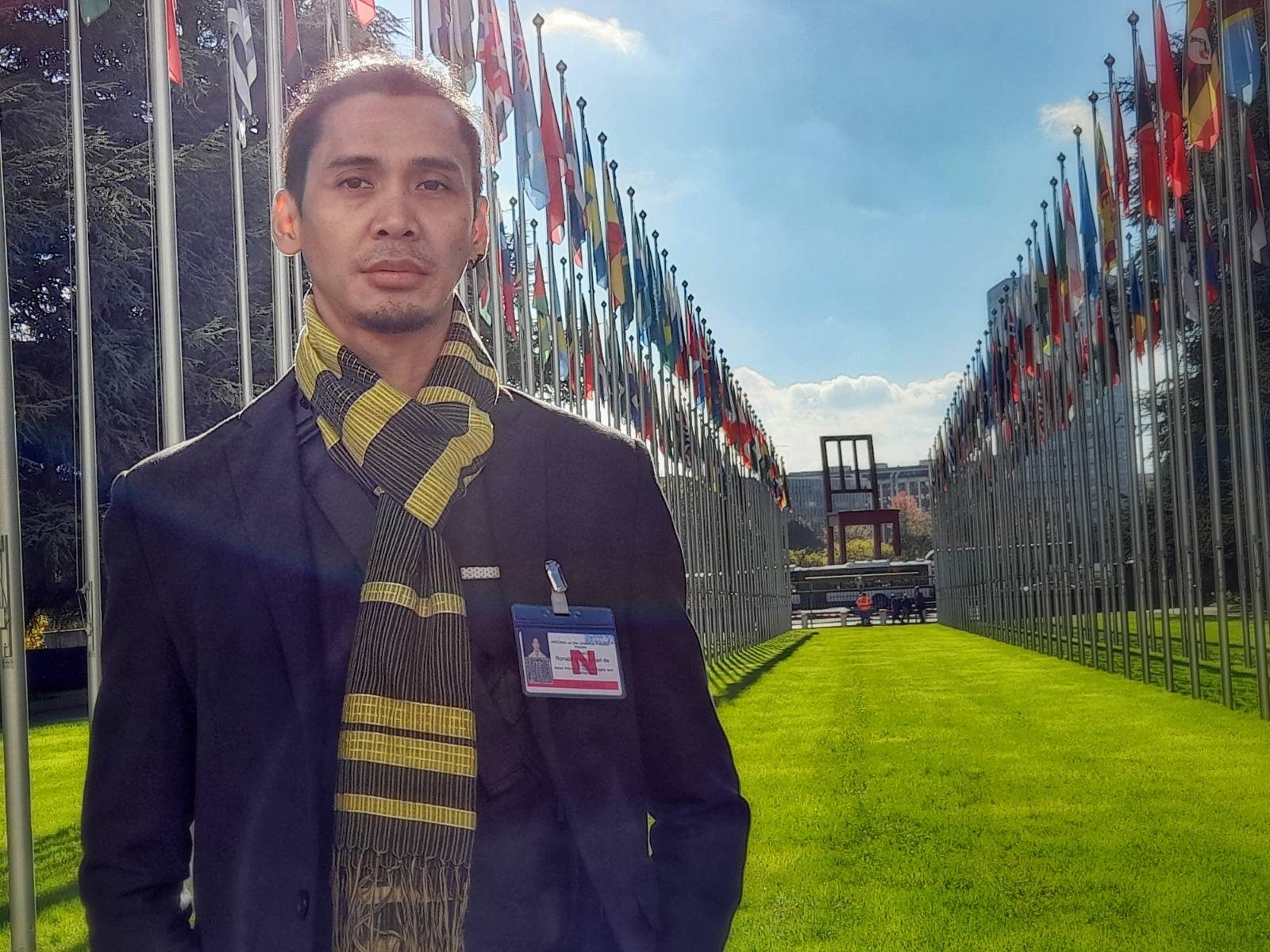SUMMARY
This is AI generated summarization, which may have errors. For context, always refer to the full article.

GENEVA, Switzerland – Ron de Vera’s early years were spent away from his mother, writer-poet Adora Faye, who had always been pursued by the government for her activism. It was only when his mother was released from prison in 1986 that they reunited and first came to know each other.
Since then, Ron became a typical mama’s boy until his teen years. Their closeness was such that they could read each other’s minds and relished sitting together while holding hands. It helped greatly that Adora was open about her past and explained to her son what she had suffered as a political prisoner under the dictatorship of Ferdinand Marcos.
Adora Faye was first arrested in October 1976, tortured and repeatedly raped by soldiers. She was kept in a safe house as a sex slave of a military officer until she escaped a year later. She was rearrested in 1983 and regained her freedom after the dictator was deposed.
“Mama was not secretive with me and did not talk to me as a child. She did not use metaphors and was very objective. She trusted that I can process the information, even her rape and torture by the soldiers,” Ron said.
Ron’s childhood was yet again rent when his father Manuel Manaog was abducted on Fathers’ Day in 1990 and has been missing since. Mother and child stayed together until Ron graduated high school and Adora Faye transferred to Panay Island to work with the Tumandok indigenous people.
Adora Faye and Ron saw each other from time to time throughout Ron’s college years and when he became a training specialist. Ron also took his skills to work with Amnesty International in the Philippines but is back as a full time training manager for a private company.
Adora Faye was in fact again based in Manila to seek medical treatment for various ailments brought by advancing age when arrested for the third time in August of this year. Denied the chance to call family or lawyers, she was flown to Panay Island on the very same day to face murder, frustrated murder using explosives, piracy/highway robbery, and rebellion charges – trumped up ones on amended warrants that merely added her name to its list of respondents.
“Barely three months into a new Marcos government, my mother was back in jail,” Ron said.
But Ron is no longer the child he was when his mother was arrested for the second time in 1983. He is now leading the campaign for her mother’s release and for better jail conditions at the Pototan District Jail in Iloilo Province. He has also has taken the campaign to the United Nations (UN) in Geneva, Switzerland as a member of the Philippine UPR (Universal Periodic Review) Watch delegation as the Philippine human rights situation undergoes a fourth review by the UN Human Rights Council (UNHRC) on Monday, November 14.
According to Karapatan, there are 842 political prisoners in the Philippines, with 99 of them sick with various illnesses. At least 15 of them, including Adora Faye, were arrested under the administration of Ferdinand Marcos Jr. because of their political beliefs and causes. In the past reviews, states have recommended that the Philippine government should stop arbitrary arrests and detention of human rights defenders.
In a forum on the human rights situation in the Philippines at the UN’s Palais du Nations last November 10, Ron talked about how bad prison conditions were, not just in Pototan but throughout the country. He narrated how prisoners were not getting enough nutrition from an inadequate budget allotted for each prisoner, leading to various health problems. He also talked about cramped conditions and arbitrary policies by jail authorities, such as the denial of cooking and ventilation appliances to make prison life bearable for persons deprived of liberty.
In between dialogues with diplomats of UN member states, UN experts and international human rights organizations, Ron produces content on his Tiktok account to explain why the UN Human Rights Council review on the human rights situation on the Philippines is important for her mother’s freedom and for the Filipino people.
“I wish to tell the political family that has jailed my mother for the third time that they are not without accountability for their human rights abuses. The numbers do not reset as regimes change. The regimes inherit the numbers, especially if there are ongoing violations,” Ron said.
Ron realizes that having her mother released through the UNHRC Review is a long shot. “But I am ready to try all channels for justice for my jailed mother and missing father. Pessimism has no place in such situations as I am in. If I see opportunities, I will give it a try,” he said. – Rappler.com
Raymund Villanueva was a multi-term national director of the National Union of Journalists of the Philippines, where he also served as deputy secretary-general. He is currently the director for radio and overall editor of Kodao Productions, board member of the People’s Alternative Media Network, and NUJP media safety officer for Luzon.
Add a comment
How does this make you feel?
There are no comments yet. Add your comment to start the conversation.